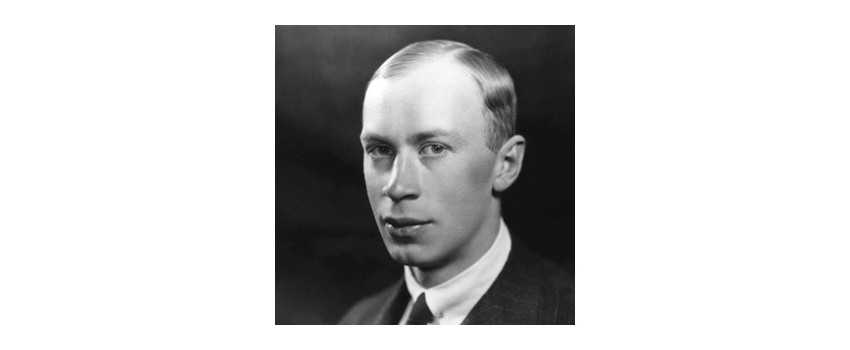Prokofiev Cello Concerto In E Minor Op 58 (Boosey & Hawkes)
Prokofiev Cello Concerto in E Minor Op 58 (Boosey & Hawkes)
Sergei Sergeyevich Prokofiev, born on April 27, 1891, was a remarkable Russian composer, pianist, and conductor. He left an indelible mark on the music industry, becoming one of the most significant composers of the twentieth century. Prokofiev's career spanned various musical genres, and he created recognized masterpieces in each of them.
Early Life and Education
Prokofiev's musical journey began at a young age. He showed prodigious talent as a pianist and composer, and his parents recognized his potential early on. They enrolled him in the Saint Petersburg Conservatory, where he honed his skills under the guidance of renowned teachers.
Breakthrough as a Composer-Pianist
Prokofiev's career took a decisive turn when he emerged as an outspoken composer-pianist. His early compositions for the piano, including his first two piano concertos, were characterized by their vicious discordance and virtuosity. These pieces marked a clear departure from the traditional composer-pianist style.
Collaboration with Sergei Diaghilev
In 1915, Prokofiev's talent caught the attention of Sergei Diaghilev, the founder of the Ballets Russes group. Diaghilev commissioned Prokofiev to compose music for a ballet, which later evolved into the symphonic Scythian Suite. This suite was constructed from music originally composed for the ballet, and it created quite a stir among reviewers and colleagues when it was first performed.
Opera as Prokofiev's True Passion
While Prokofiev achieved recognition for his compositions in various genres, opera held a special place in his heart. He composed several operas throughout his career, including notable works such as "The Gambler" and "The Fiery Angel." However, it was "The Love for Three Oranges" that became his only operatic success during his lifetime. This opera, initially written for the Chicago Opera, was later performed in Europe and Russia to great acclaim.
International Travels and Return to the Soviet Union
Prokofiev's life took a turn after the 1917 Revolution in Russia. Fleeing the country, he lived in the United States, Germany, and finally settled in Paris. During this time, he earned a living as a composer-pianist and conductor. However, the Great Depression limited the opportunities for his ballets and operas to be presented in America and Western Europe.
Growing increasingly dissatisfied with his touring commitments, Prokofiev turned to the Soviet Union for fresh music commissions. In 1936, he and his family returned to their motherland. It was during this time that he composed some of his greatest Soviet hits, including "Lieutenant Kije," "Peter and the Wolf," "Romeo and Juliet," "Alexander Nevsky," the Fifth Symphony, and the Piano Sonatas Nos. 6-8.
Collaboration with Mira Mendelson
Inspired by the Nazi invasion of the Soviet Union, Prokofiev embarked on his most ambitious project, an operatic adaptation of Leo Tolstoy's "War and Peace." He collaborated with Mira Mendelson, his lifelong lover and subsequently his second wife, to write the libretto. However, their work was met with criticism, and Prokofiev was accused of creating an "anti-democratic formality" in 1948.
Recognition and Support
Despite the challenges, Prokofiev received emotional and artistic support from a new generation of Russian musicians, particularly Sviatoslav Richter and Mstislav Rostropovich. These talented individuals recognized Prokofiev's unique gift for writing distinctively original diatonic melodies, setting him apart from other composers of the 20th century.
Posthumous Reputation
While Prokofiev's music was highly regarded in the Soviet Union, his reputation suffered in the West due to Cold War tensions. Western academics and critics did not give his music the same level of esteem as that of Igor Stravinsky and Arnold Schoenberg, who were seen as having a more significant influence on younger generations of musicians.
Legacy and Recognition
Despite the challenges faced during his lifetime, Prokofiev's musical legacy lives on. In honor of his birthplace, the Donetsk International Airport and the Donetsk Musical and Pedagogical Institute renamed the "S.S. Prokofiev State Music Academy of Donetsk" in 1988. Additionally, the All-Ukrainian open pianists' competition, named after S.S. Prokofiev, takes place annually in Kyiv, Ukraine, featuring categories such as piano, composition, and symphony conducting.
Conclusion
Sergei Sergeyevich Prokofiev's life and music are a testament to his immense talent and dedication to his craft. From his early breakthrough as a composer-pianist to his operatic successes and his return to the Soviet Union, Prokofiev left an indelible mark on the music world. While his reputation faced challenges during the Cold War, his unique gift for creating original melodies continues to be recognized and celebrated today.

Prokofiev Cello Concerto in E Minor Op 58 (Boosey & Hawkes)